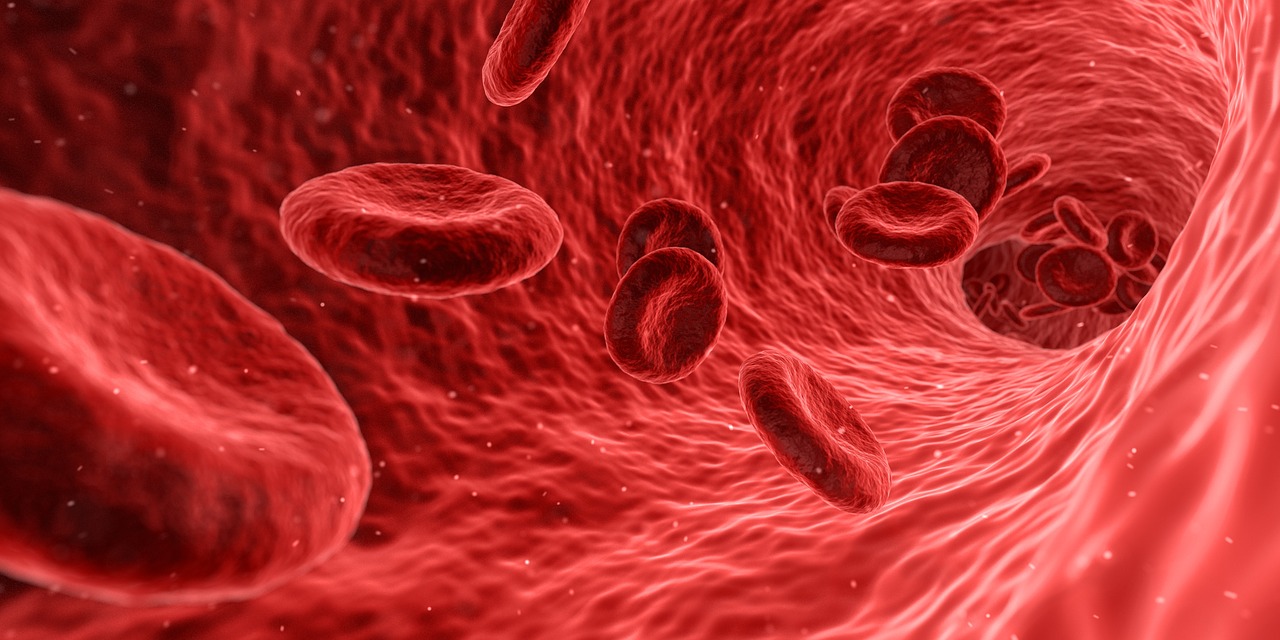I nicked my finger on a knife
That day before dinner
and while the toddler howled and the dog whined
and peas boiled over and pizza burned,
I watched it:
thin red liquid line.
A few drops of blood.
Millions of erythrocytes – red blood cells.
A staggering loss
except that, at the same moment, 25 trillion red blood cells (minus these few million)
were speeding through my body.
Small disks without a brain or a powerhouse
because there simply isn’t room.
Not when you have a single job: pack yourself with oxygen.
One small red blood cell has 250 million molecules of hemoglobin clasping 1 billion molecules of oxygen.
They hold tight through arteries and blood vessels, until the capillaries, where oxygen – the unsocial, dissociative molecule it is – checks out, goes its own way, to where it’s actually needed.
Red blood cells are designed to not even use the oxygen they carry on their journey.
The body does not like to waste.
These millions of escapee cells, loosed by the slip of my knife will be quickly replaced.
Perhaps death to open air is preferred to being eaten by a phagocytic cell, which would’ve happened anyway after three or four months of constant service – clock in when you’re born and out at your death.
But it wasn’t just red blood cells lost in my carelessness:
there was water
and salts and proteins and hormones and wastes.
And there were the fighters,
those white blood cells always on patrol for enemies, ready to destroy.
Fingers crossed and prayers said they will only ever identify the
real enemies
otherwise, they might just take my whole ship down.
The dog howled again
and I picked up the toddler and
stuck my finger in my mouth
quelling the bleeding (knowing that platelets and fibrin were already doing their sticky work to plug the slender cut)
tasting that metallic, iron flavor
that is the cornerstone
of my life.
I turned off the peas, finger still in mouth,
then dumped the pizza into the trash
and called
for takeout.
__________
commonfund.nih.gov
nsf.gov, quantitative light imaging gallery






